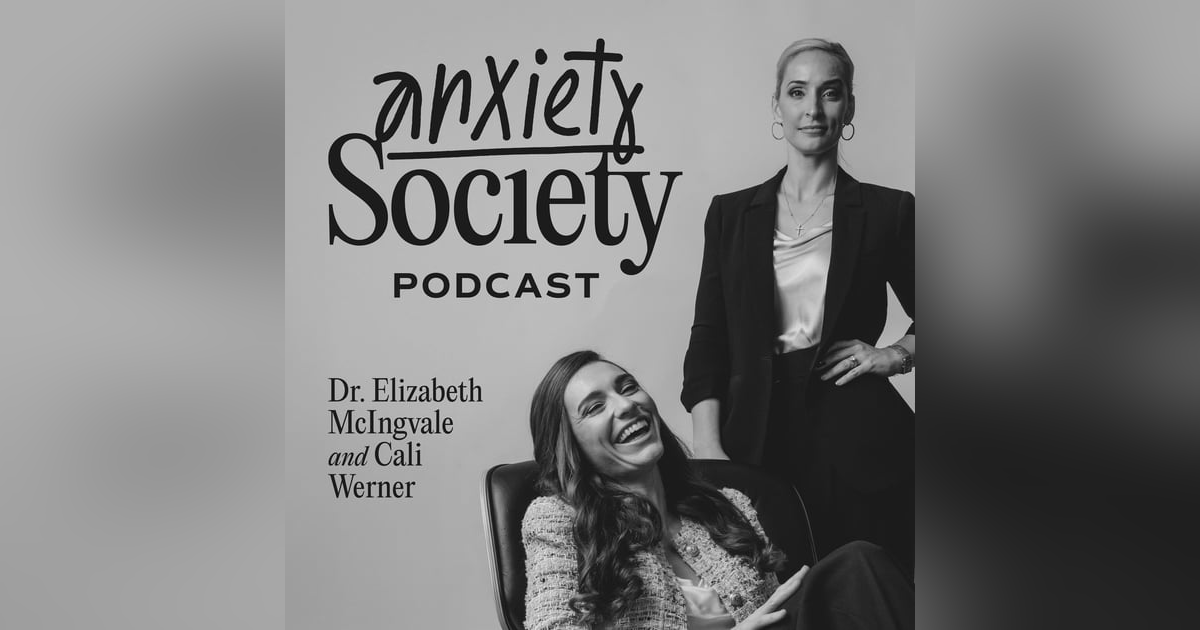Anxiety Q & A: Expert Advice on Anger, Perfectionism, and More


Welcome back to The Anxiety Society Podcast! This episode is a special treat as we hold a live Q&A session with our listeners. Join hosts Dr. Elizabeth McIngvale and Cali Werner as they tackle your burning questions about anxiety. We explore what anxiety looks like in daily life, discuss the difference between general anxiety and anxiety disorders, and provide insights on handling anxiety in children and the workplace. Plus, we touch on how anxiety can manifest as anger, and share practical advice for both individuals and their loved ones. Tune in for real, raw, and unfiltered answers that will help you navigate anxiety and regain control of your life.
Key Points:
- [00:06] - Introduction to The Anxiety Society Podcast and today’s special Q&A format.
- [01:20] - Discussing the common signs of anxiety in daily life and the difference between typical anxiety and anxiety disorders.
- [03:04] - Addressing how anxiety can interfere with everyday functioning and what an anxiety disorder looks like.
- [03:26] - Advice for parents on dealing with their child’s anxiety and handling bullying situations.
- [04:29] - Responding to a listener who is struggling with anxiety at work and considering changing jobs.
- [05:47] - Exploring how anxiety can appear as anger and other emotions.
- [07:16] - Strategies for talking to loved ones about their anxiety and encouraging them to seek help.
- [10:07] - Addressing an athlete’s anxiety about life after sports and identity beyond their career.
- [12:05] - When medication might be recommended for anxiety disorders.
- [13:09] - Understanding if and how parents might be contributing to their child’s anxiety and ways to teach children about anxiety.
- [15:15] - Tips for discussing personal anxiety with a spouse and improving mutual understanding.
- [18:09] - Common misconceptions about perfectionism and how it differs from simply being detail-oriented or Type-A.
- [20:00] - The impact of culture on our perceptions of anxiety and perfectionism, and the importance of tailored treatment approaches.
- [21:11] - Future directions for the mental health field in improving access to evidence-based treatments.
- [22:51] - The role of personal experience in being an effective clinician and maintaining professional boundaries.
- [24:32] - Differentiating between diagnosable anxiety disorders and common symptoms of anxiety.
- [26:02] - Managing family dynamics when personal anxiety affects household interactions.
- [27:50] - Recognizing when anxiety-driven behaviors are attempts to regain control in other areas of life.
Quotable Moments:
- [01:43] - "This is how it's actually applied in real life. Examples that are tangible." - Dr. Elizabeth McIngvale
- [03:04] - "If it's more of an anxiety disorder, this is something that's not just turning off or just passing. It gets in the way of your ability to maintain friendships, relationships, your ability to work, your ability to do what it is that you need to do day to day." - Cali Werner
- [07:16] - "We can't force someone to go to treatment. But if they are not receptive and open to it, it's not going to be that useful." - Dr. Elizabeth McIngvale
Link Mentioned:
- Anxiety Society Podcast: http://www.anxietysocietypodcast.com
- Instagram: @theanxietysocietypod : https://www.instagram.com/theanxietysocietypod
- NAMI: https://www.nami.org/
- Anxiety and Depression Association of America: https://adaa.org/
Thank you for joining us on this episode of The Anxiety Society Podcast. We hope our answers provided you with valuable insights and actionable advice. Remember to subscribe to our podcast on your favorite platform so you never miss an episode. Together, we can change how we live with and perceive anxiety. Until next time!


